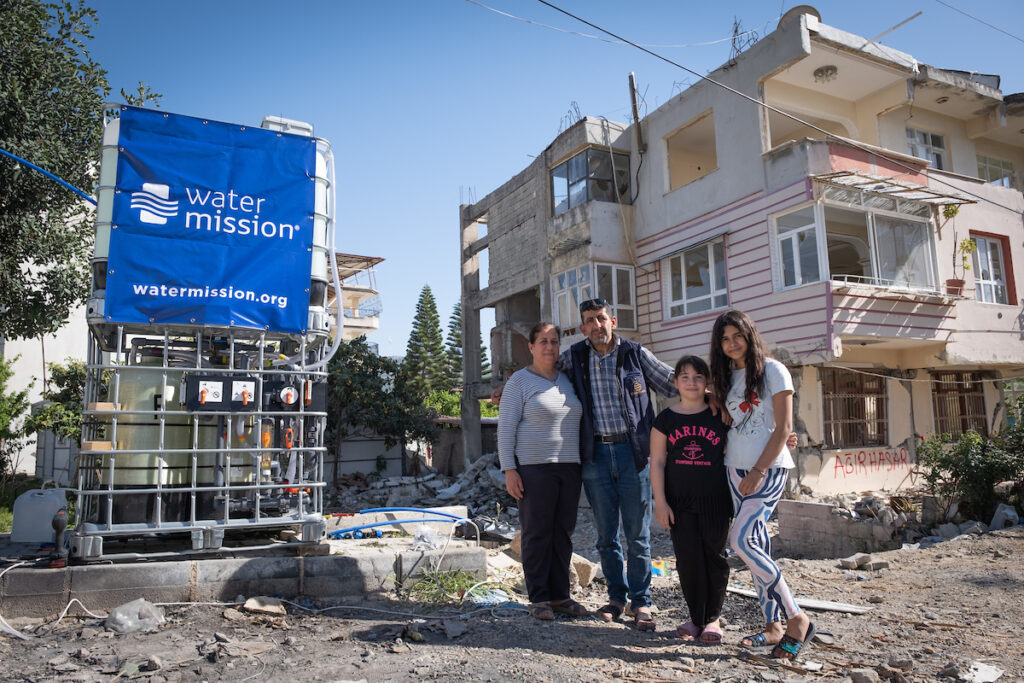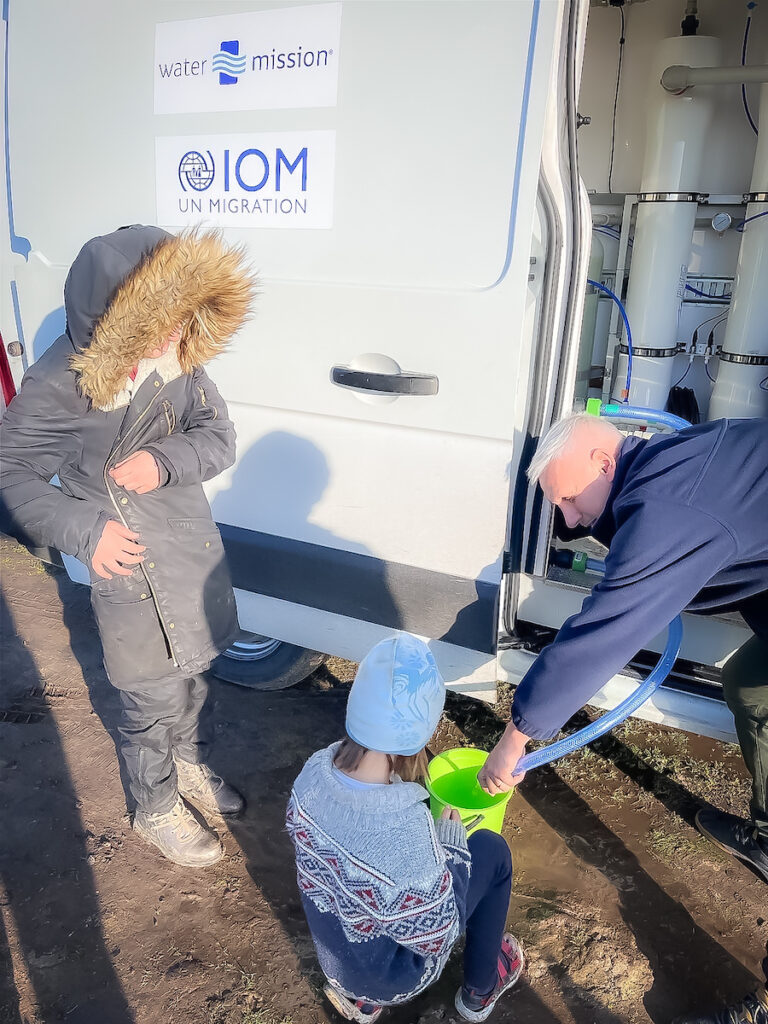Water Mission has more than 20 years of experience responding to natural disasters and humanitarian crises in over 50 countries with both immediate and long-term safe water, sanitation, and hygiene (WASH) solutions.

In April 2023, Water Mission’s disaster response team installed a safe water system in Municipal Bazaar Displacement Camp i Hatay, providing 1,000 people in the camp with consistent, reliable access to safe water. Photo: Water Mission
In the last year, Water Mission responded to the devastating earthquakes in Turkey, and most recently the flooding in East Africa, serving over 280,000 people affected by disasters, often collaborating with organizations such as UNICEF, Oxfam, USAID’s Bureau for Humanitarian Assistance, World Central Kitchen, UN Migration (IOM), and others.
Emergency safe water access is critical for survival and recovery in every disaster. The internationally accepted Sphere Standards established for disasters stipulate the minimum volume of water required for drinking and domestic hygiene per household in a disaster context is two gallons (7.5 liters) per person per day.

Mobile Water Systems, Mykolaiv and Zaporozje – Ukraine. Photo: Water Mission
Water Mission actively works to coordinate efforts with local government authorities and other responding organizations to exceed these disaster relief standards.
In addition to its disaster response capabilities, Water Mission focuses on increasing sustainable safe water access in remote communities in eight countries around the world. This community development work is in response to the global water crisis, where according to the World Health Organization, more than two billion people around the world lack access to clean, safe water. Water Mission believes that, together, we can end the global water crisis. In the last year, Water Mission has served more than 1.9 million people with WASH solutions and more than 8 million people since its founding.

